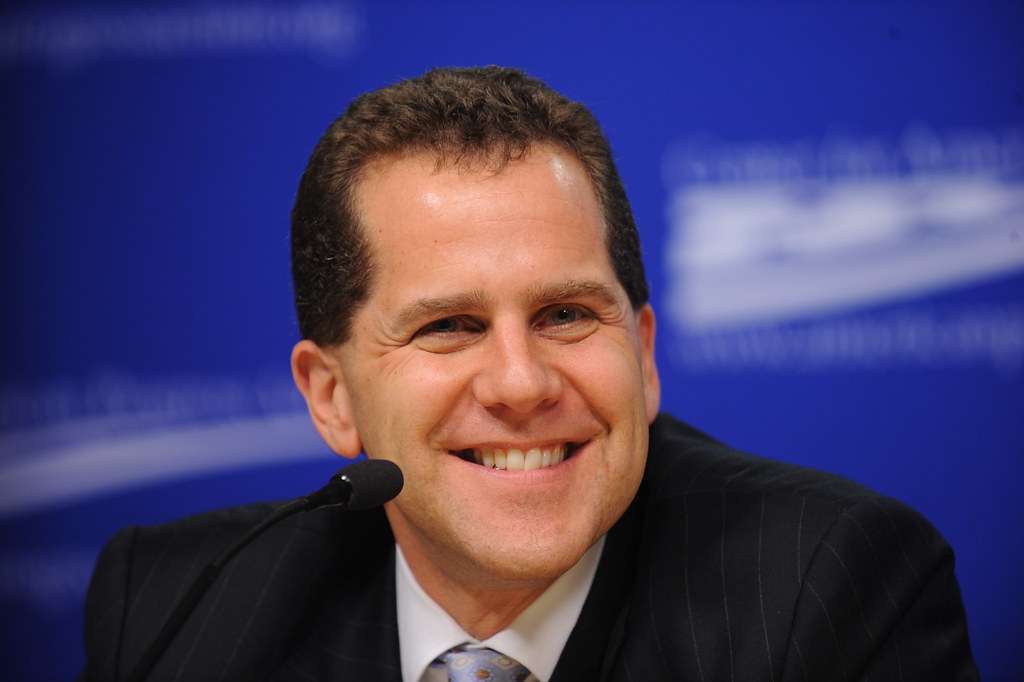Over a decade after the financial crisis, few would still dispute that the revolving door between financial regulators and the financial industry helped pave the way for economic disaster. In the years preceding the crash, regulators who came from the country’s largest banks and planned to promptly return to them, removed regulatory restraints and turned a blind eye to the predictably dangerous effects (see, e.g. Robert Rubin and Alan Greenspan). In the next administration, different regulators drawn from the same well let the fraudsters off the hook and left the working people who had fallen victim to them out to dry.
And yet, as familiar as that story has become, many appear not to have learned its lessons. When it comes to the cryptocurrency and fintech industries, which some believe could be responsible for the next crash, concerns about the revolving door have too often been waved away.
Most recently, that has been the case for Michael Barr’s rumored nomination to be the Federal Reserve Board of Governors’ Vice Chair of Supervision. Barr’s record at the Treasury Department in the wake of the last financial crisis is reason enough to be concerned. But, even setting that aside, Barr’s close (and, in many cases, ongoing) affiliation with cryptocurrency and fintech companies, their investors, and their think tanks, make him a poor candidate to lead regulatory policy at the Federal Reserve.
Financial regulators, including the Federal Reserve, are in the process of studying the digital asset industry to inform upcoming regulatory action. As we wrote for the American Prospect this week, “the decisions they make in the coming months could launch the crypto industry to new heights … or bring it crashing down to Earth.” Unsurprisingly, the industry is spending lavishly, particularly on revolving door hires, to secure its preferred outcome. This, we argued, is a threat to public trust in whatever regulations the Biden administration eventually develops for the industry. It should go without saying that placing the Federal Reserve’s regulatory portfolio in the hands of someone who has repeatedly chosen to associate with the industry and advocated on its behalf also threatens that trust.
Michael Barr’s Ties to Cryptocurrency and Fintech are Recent and Ongoing:
NYCA Partners. Barr is currently an “LP Advisor” at NYCA Partners, a venture capital firm “which exclusively invests in fintech startups,” including 17 that are billed as “payment solutions.” NYCA lists Barr not as a Dean at University of Michigan (his current role) but as a former Treasury Department official, in a transparent effort to portray him to clients as a “connection who can help them with regulatory problems.”
Alliance for Innovative Regulation (AIR). Barr is currently a member of the advisory council for the Alliance for Innovative Regulation, a think tank that receives heavy funding from the cryptocurrency and fintech industries, and has advocated extreme regulatory reform measures. In a 2020 report, AIR identified transparency safeguards like the freedom of information act and processes for democratic input, like public comment, as impediments to innovation.
Ripple Labs. Barr served as an advisor to the cryptocurrency exchange, Ripple, until 2017. He remained closely tied to the company in the years after, coauthoring with another Ripple Advisor in 2018 a paper that touted the fintech industry. Ripple aims to become “The Amazon of Payments,” a central for-profit clearinghouse for online payment transactions. In 2020, the Securities and Exchange Commission charged Ripple and two of its executives with carrying out unregistered securities offerings totaling $1.3 billion.
Lending Club. Barr served as an advisor to peer-to-peer lending company LendingClub, starting in 2013. In 2017, the Cleveland Fed labeled the products offered through platforms like LendingClub “predatory” and warned that high delinquency rates in the space could pose a threat to financial stability. In 2021, Lending Club agreed to pay the FTC $18 million to settle a case alleging that it had “deceived consumers about hidden fees that it charged and about whether their loan applications were approved.”
Note: These are the affiliations of which we are aware. It is possible that personal financial disclosure forms could reveal additional connections should Barr be nominated for the post.
As Vice Chair of Supervision, Barr would lead policy development on matters that are directly relevant to the cryptocurrency industry. The following are just a few of the issues that are or soon will be under consideration at the Federal Reserve:
- Central Bank Digital Currency: As the federal reserve considers whether to issue a CBDC, crypto firms will seek to influence the process. Some firms will likely argue there’s no need to have a public digital option compete with private digital currencies, which are already established. If the Fed does decide to issue a CBDC, the crypto industry will be keen to figure out how they can impact technological assessments and development.
- Master Accounts for Cryptocurrency Firms: If crypto and fintech firms obtain accounts at the Federal Reserve, they will gain access to the central bank’s payment system service. A master account would allow firms to deposit funds at the Federal Reserve and access global payments rails. To date, the Fed has refused to approve firms’ requests noting the significant risk involved with providing access to firms that are not subject to as much supervision and regulation as traditional banks.
- Stablecoins and financial stability: Stablecoins are digital currencies purportedly backed by real world assets such as fiat currency. Due to this backing and perceived stability, stablecoins facilitate a significant amount of cryptocurrency transactions. However, growing adoption of stablecoins presents a challenge to the Federal Reserve’s goals of maintaining financial stability. There is a real chance of run risk if customers move to redeem their holdings at the same time. This would put real pressure on stablecoin issuers’ reserves which reports have shown to be far from stable.

